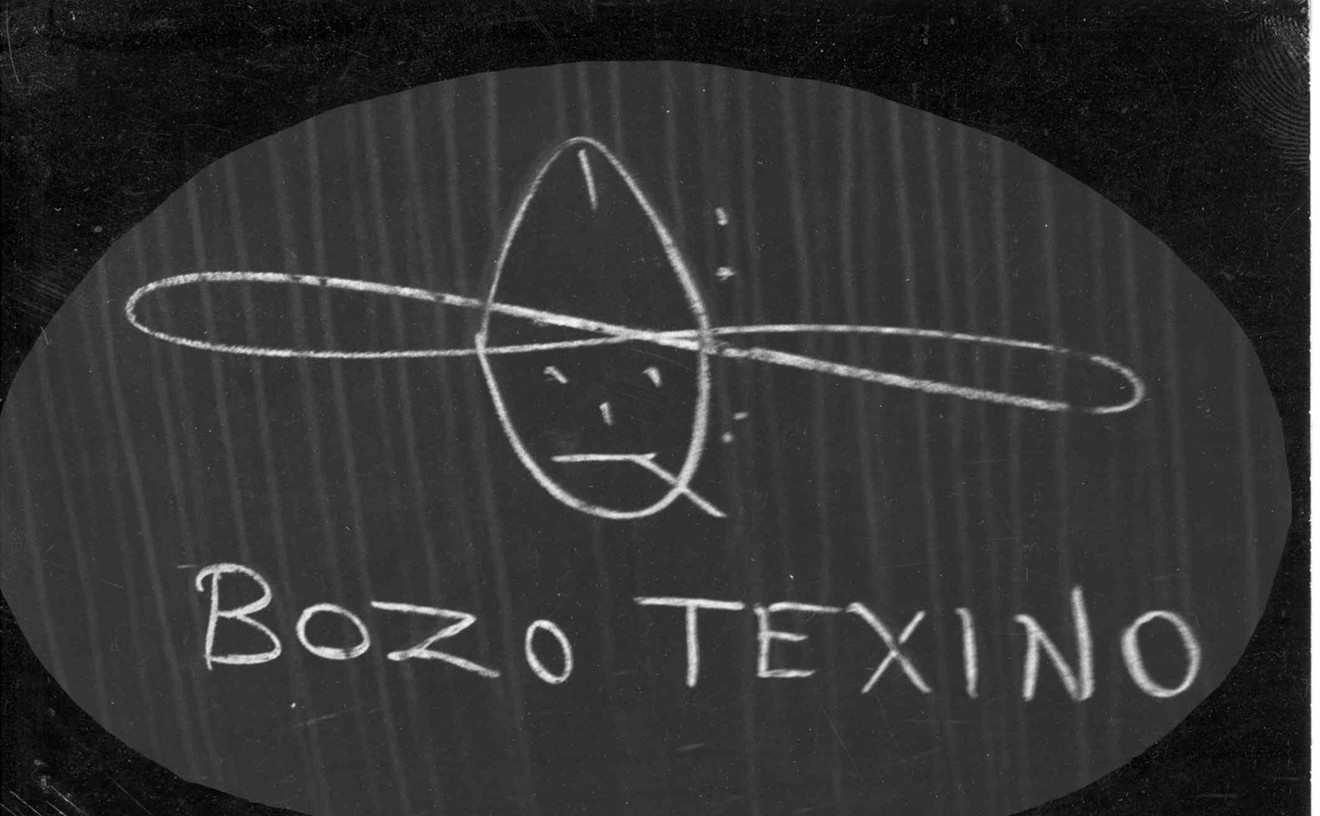Bah, Humbug! Eight Lousy Lessons From Classic Christmas TV Specials
Kids today just don’t get it. Back in the TV dark ages, stations would actually sign off between midnight and 5AM, cartoons were on Saturday morning, and the occasional holiday special were what marked the time between Thanksgiving and Christmas. Just the sound of the announcement that there was a special program about to start was Pavlovian. These days, of course, kids can watch all of these specials on-demand, which makes them less of an event. Back then, they were, without a doubt, special.Of course, time has not always been kind to the delights of our youth, and the classic Christmas specials are no exception. Each one, even where they retain their charms, has a moral—whether intended or accidental—that if you consider it from a modern perspective sort of ruins it, or at least reveals the differences between the era of its creation and the place we are in American culture today. Just please: don’t let these foibles detract from the overall goodness of these TV holiday artifacts. This list is meant with nothing but love.
December 16, 2016
[
{
"name": "Air - MediumRectangle - Inline Content - Mobile Display Size",
"component": "12017618",
"insertPoint": "2",
"requiredCountToDisplay": "2"
},{
"name": "Editor Picks",
"component": "17242653",
"insertPoint": "4",
"requiredCountToDisplay": "1"
},{
"name": "Inline Links",
"component": "18838239",
"insertPoint": "8th",
"startingPoint": 8,
"requiredCountToDisplay": "7",
"maxInsertions": 25
},{
"name": "Air - MediumRectangle - Combo - Inline Content",
"component": "17261320",
"insertPoint": "8th",
"startingPoint": 8,
"requiredCountToDisplay": "7",
"maxInsertions": 25
},{
"name": "Inline Links",
"component": "18838239",
"insertPoint": "8th",
"startingPoint": 12,
"requiredCountToDisplay": "11",
"maxInsertions": 25
},{
"name": "Air - Leaderboard Tower - Combo - Inline Content",
"component": "17261321",
"insertPoint": "8th",
"startingPoint": 12,
"requiredCountToDisplay": "11",
"maxInsertions": 25
}
]
Kids today just don’t get it. Back in the TV dark ages, stations would actually sign off between midnight and 5 a.m., cartoons were limited to Saturday morning, and the occasional holiday special was what marked the time between Thanksgiving and Christmas. Just the announcement that a special program was about to start drew a Pavlovian response. These days, kids can watch all of these specials on demand, which makes them less of an event. But back then, they were definitely special.
Of course, time has not always been kind to the delights of our youth, and the classic Christmas specials are no exception. Each one has a moral — whether intended or accidental — and considering that moral from a modern perspective sort of ruins it, or at least reveals the differences between the era of its creation and the place we are in American culture today. Still, you shouldn't let these foibles detract from the overall goodness of these TV holiday artifacts — thus our list of the eight worst moments in Christmas specials is wrapped up in nothing but love.
8. Rudolph the Red-Nosed Reindeer
Despite the list of complaints about this rightly beloved classic from 1964 (awful sexism displayed by the reindeer, the fact that Santa is a complete asshat to everyone), Rudolph’s story is all about social assimilation. Sure, it pretends to be the opposite — all the misfits find places in the end, though they didn’t in the original: The end credits, where Santa delivers the misfit toys to the boys and girls of the world was added in the second year of airing, after those boys and girls all over the world complained that they were still stranded on Moonracer’s island. Still, Rudolph only wins a place on the team because Santa finds a need for his abnormality; it’s sort of like saying that the kid in the wheelchair can only come to the mall if he carries all the packages on his lap.
7. Year Without a Santa Claus
This 1974 Rankin-Bass special is best remembered for Heatmiser and Snowmiser, the two wayward children of Mother Nature. And therein lies the problem: Snowmiser controls the North Pole and Heatmiser controls Southtown (wherever that is), and the central problem somehow isn’t that these two thermal despots don’t have the right to control an entire region and its population. In the end, the only thing that convinces these two stop-motion animated dictators to give it up is — you guessed it — when their mom shoots lightning at them and threatens them. So the lesson is that tyranny is only beaten by more powerful tyranny. You know, like Trump’s America.
6. The Star Wars Holiday Special
Honestly, there are too many negative lessons here to list. But perhaps the most egregious: that you should squeeze every dollar out of the excitement of children in order to make a buck. But the massive merchandising that has unrelentingly spun out of control since 1977 (with a brief lull in the relatively Star Wars-free early ’90s) already taught us that. So let’s go with this bad lesson: It’s okay not to subtitle the long conversations of Wookiees talking amongst themselves. And to let Carrie Fisher sing. And to have some sort of weird Diahann Carroll musical porno, and to have an aged Art Carney watch it appreciatively. And...well, like I said, too many negative lessons to list.
5. Frosty the Snowman
A big, broom-wielding snowman trudges around town saying “Happy Birthday!” to everyone in this 1969 cartoon, trying to outrun his inescapable sun-drenched melty end. Sure, there’s disrespect for authority all over the place, but that’s not really the core problem. The primary moral of Frosty is this: You can’t avoid your destiny, and you can choose to believe in the magic hat that will bring you back to life someday, but that’s not going to keep you from melting to nothing for now. Wow, that’s some depressing shit. It’s a good introduction to the fatalism of Nietzsche, but to quote Fred Savage’s role in the framing technique of The Princess Bride: “Jesus, Grandpa, what did you read me this thing for?” Word, little Fred Savage. Word.
Keep reading for more bad lessons from Christmas specials.
4. Santa Claus Is Comin’ to Town
Rankin-Bass had a lot of great Christmas specials over the years, and 1970 was no exception. This was sort of an origin story for none other than Santa Claus, which manages to only raise more questions than it answers. Kris Kringle was apparently an orphan, delivered to a place called Sombertown (where this is in relation to Southtown is not revealed), and there are Burgermeisters and Elf Queens and Winter Wizards and all sorts of disparate elements in a story narrated by Fred Astaire, doing yeoman work trying to hold it all together. And therein lies the bad lesson: Throwing money at something will not help it make any sense whatsoever.
3. Emmet Otter’s Jugband Christmas
If you look up the word “earnest” in the dictionary, you’ll find this 1978 classic pictured right there next to it, as long as you’re consulting a Muppet-themed dictionary (and if one of those doesn’t exist, it should). But there’s a dark side, too: Both Emmet and his Ma twist the Gift of the Magi tradition to risk everything for a good Christmas for the other. But they do so not by sacrificing their own precious things (as in the O. Henry original story), but rather each other’s livelihoods: Emmet turns Ma’s washtub into a musical instrument, and Ma sells Emmet’s tools for dress fabric. They do this because it’s what Pa would have done…but Pa clearly didn’t make great choices, right? It all works out in the end, but only because deus ex machina — er, Doc Bullfrog — steps in and gives them both jobs. So, kids, throw caution to the wind! Take dumb chances with other people’s things! It’s all going to be fine, just fine.
2. How the Grinch Stole Christmas
This special from 1966 is plain genius, no argument. From the Seussian rhymes to the original songs to the Chuck Jones animation to the Boris Karloff narration, it’s just about perfect. But think about what happens in this story: The Grinch lives his life (for 53 years, he’s put up with it now!) terrorizing an entire town, stealing the residents' stuff and ruining their lives (and sort of threatening them, in the lesser-known Halloween special Halloween Is Grinch Night), only to be forgiven when he makes a dubious about-face for really no reason whatsoever. You could call it a Christmas miracle, I guess...but that would be a very bad lesson, indeed. Remember what Maya Angelou said, Mr. Grinch: When someone shows you who they are, believe them the first time. Once a mean one, always a mean one.
1. A Charlie Brown Christmas
It might be the Great Pumpkin who rewards sincerity as far as the eye can see, but it’s Charlie Brown and the rest of the Peanuts gang who value that sincerity. But maybe not so much the special itself, which purports to be all about Bible verses quoted by Linus in the spotlight and spontaneous dancing to Vince Guaraldi jazz, and sentiments like “It’s not such a bad little tree…it just needs a little love!” But, really, when you get right down to it, A Charlie Brown Christmas is about the unbeatable juggernaut of commercialism. Need evidence? The show was originally sponsored by Coke, and in initial airings (and on some DVDs), the opening ice-skating sequence ended with Snoopy swinging Linus into…you guessed it — a Coca-Cola billboard. Good grief.

KEEP WESTWORD FREE...
Since we started Westword, it has been defined as the free, independent voice of Denver, and we'd like to keep it that way. Your membership allows us to continue offering readers access to our incisive coverage of local news, food, and culture with no paywalls.
You can support us by joining as a member for as little as $1.
Teague Bohlen is a writer, novelist and professor at the University of Colorado Denver. His first novel, The Pull of the Earth, won the Colorado Book Award for Literary Fiction in 2007; his textbook The Snarktastic Guide to College Success came out in 2014. His new collection of flash fiction, Flatland, is available now.
Contact:
Teague Bohlen


Newsletter Sign Up
Enter your name, zip code, and email
I agree to the Terms of Service and
Privacy Policy
Sign up for our newsletters
Get the latest music, news, free stuff and more!
Trending
Use of this website constitutes acceptance of our
terms of use,
our cookies policy, and our
privacy policy
Westword may earn a portion of sales from products & services purchased through links on our site from our
affiliate partners.
©2024
Denver Westword, LLC. All rights reserved.
Do Not Sell or Share My Information
Do Not Sell or Share My Information








